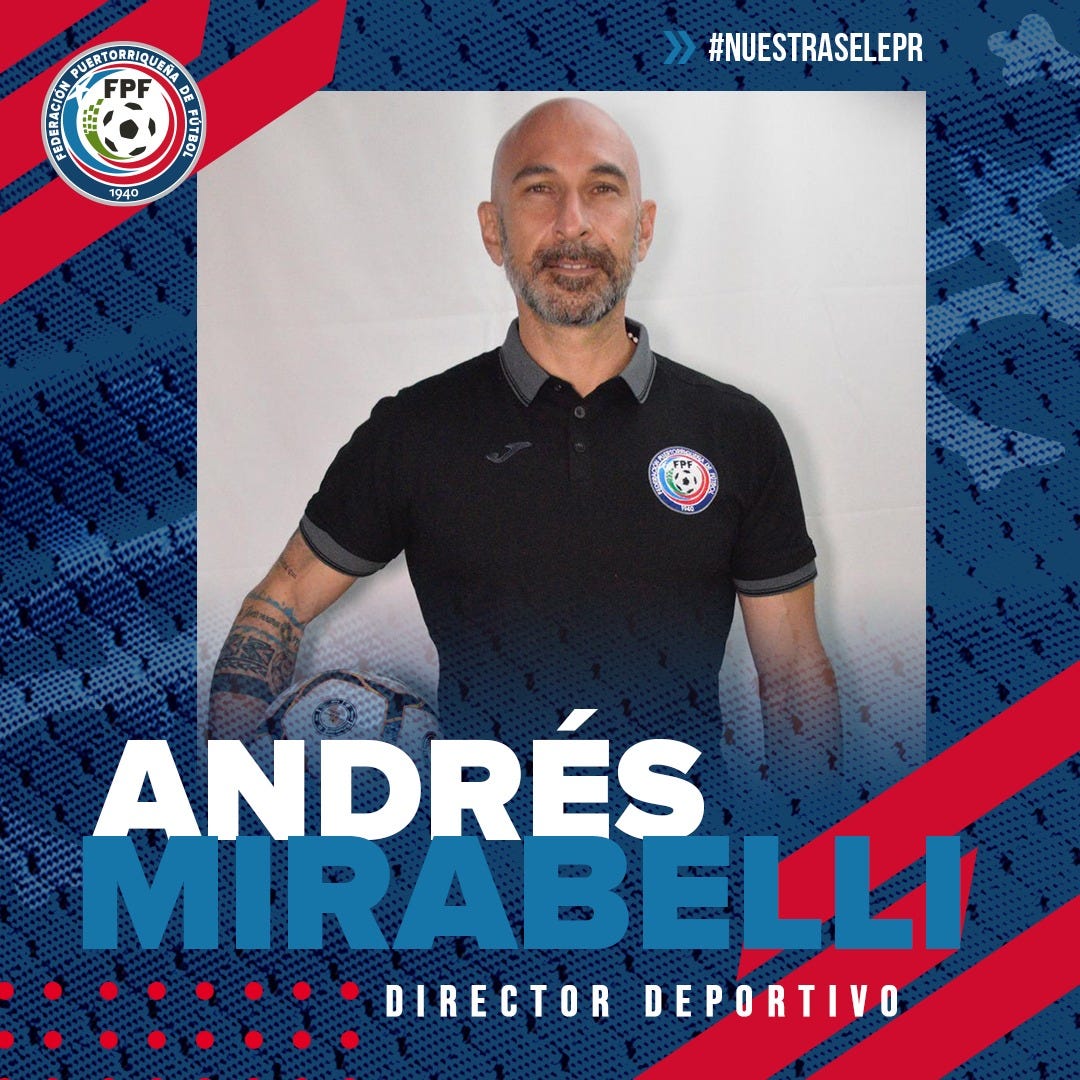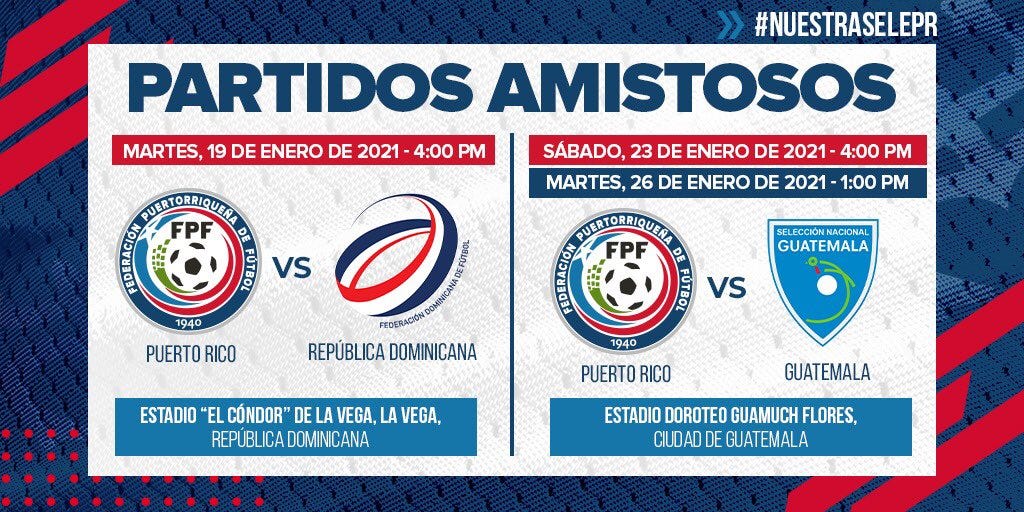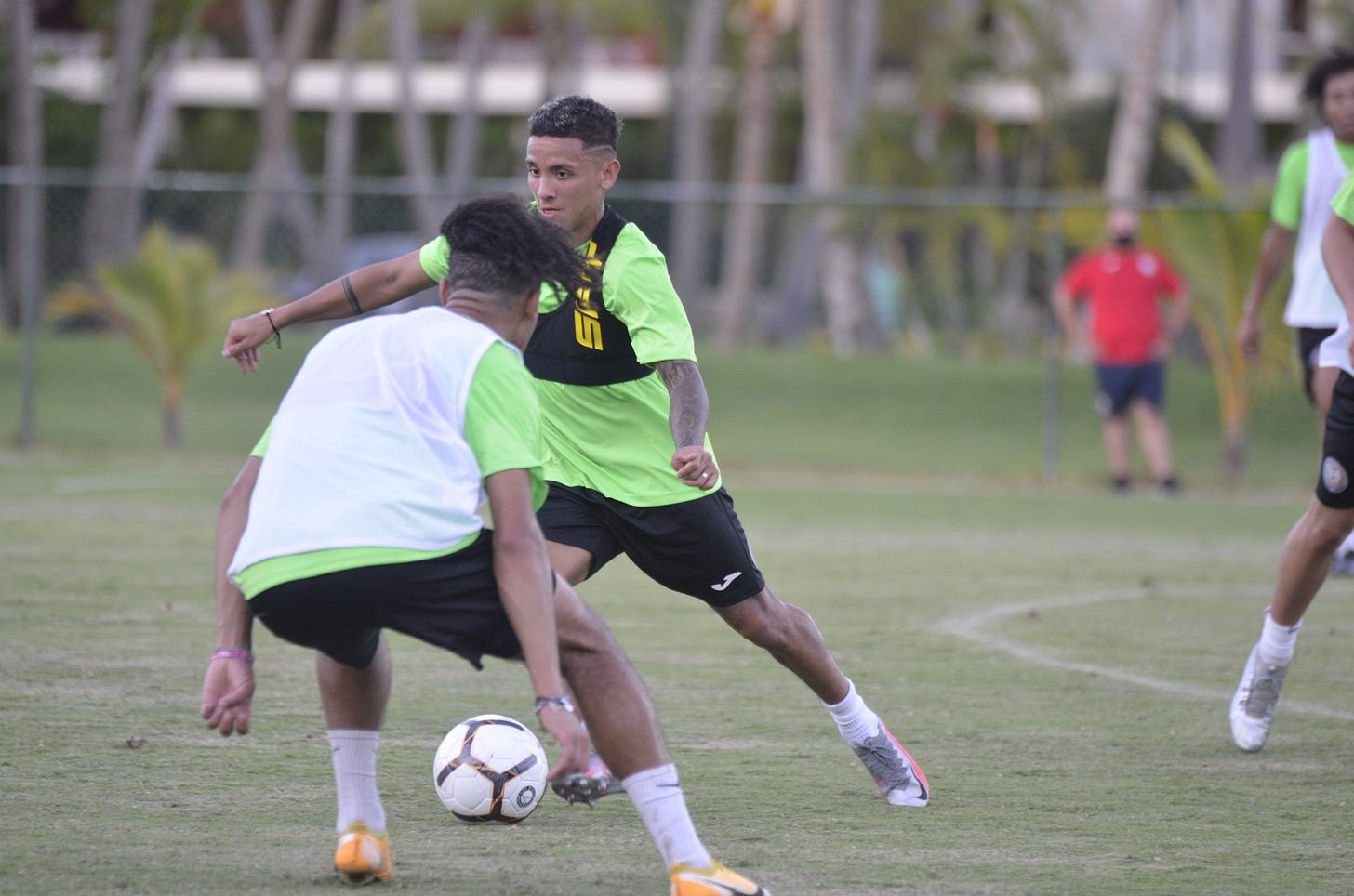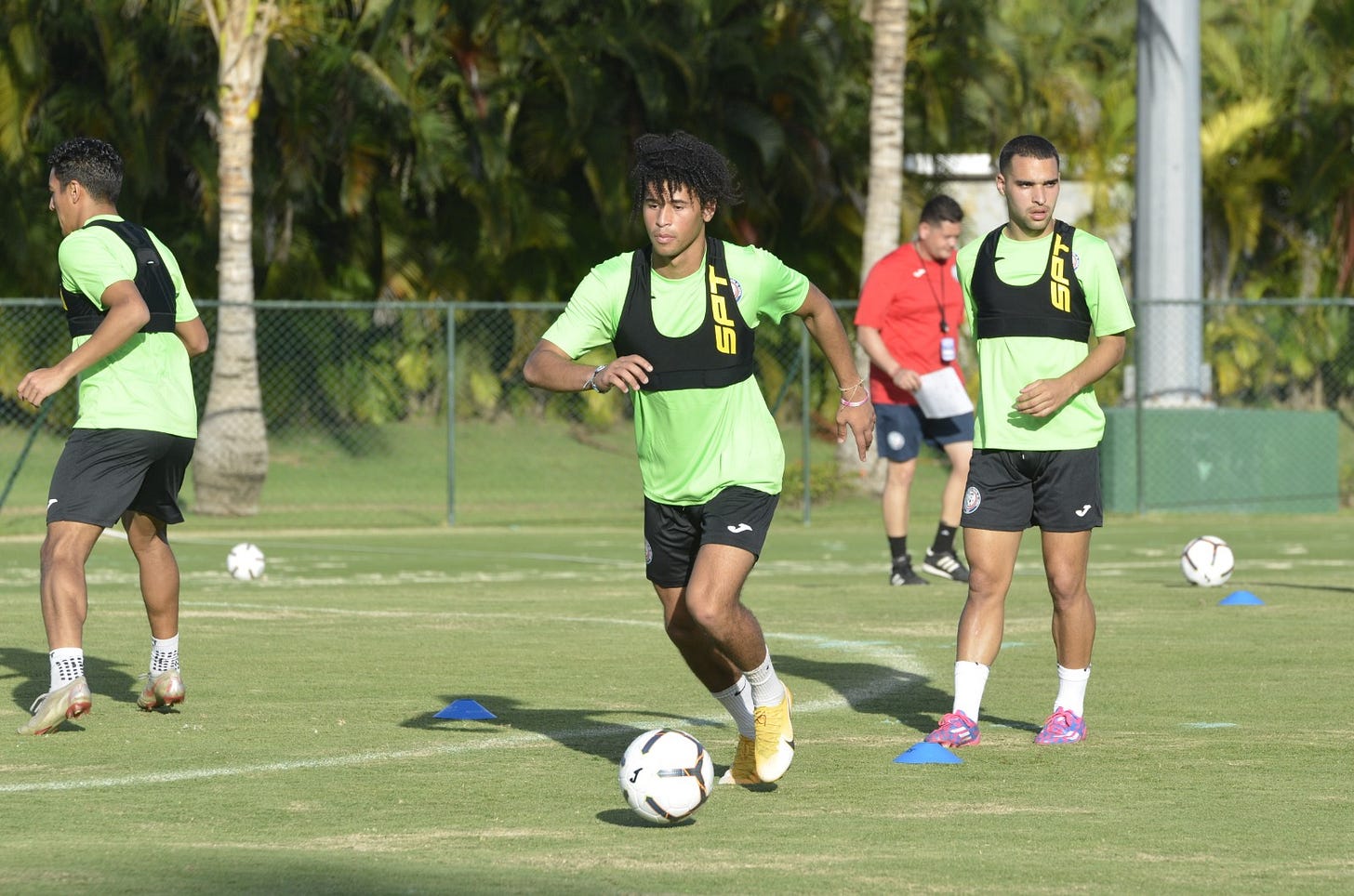🇵🇷 'We want to be un huracán de fútbol' Puerto Rico's plan goes far beyond 2021
A trio of January friendlies show intent to improve, but Puerto Rico is putting its long-term plan ahead of instant results.
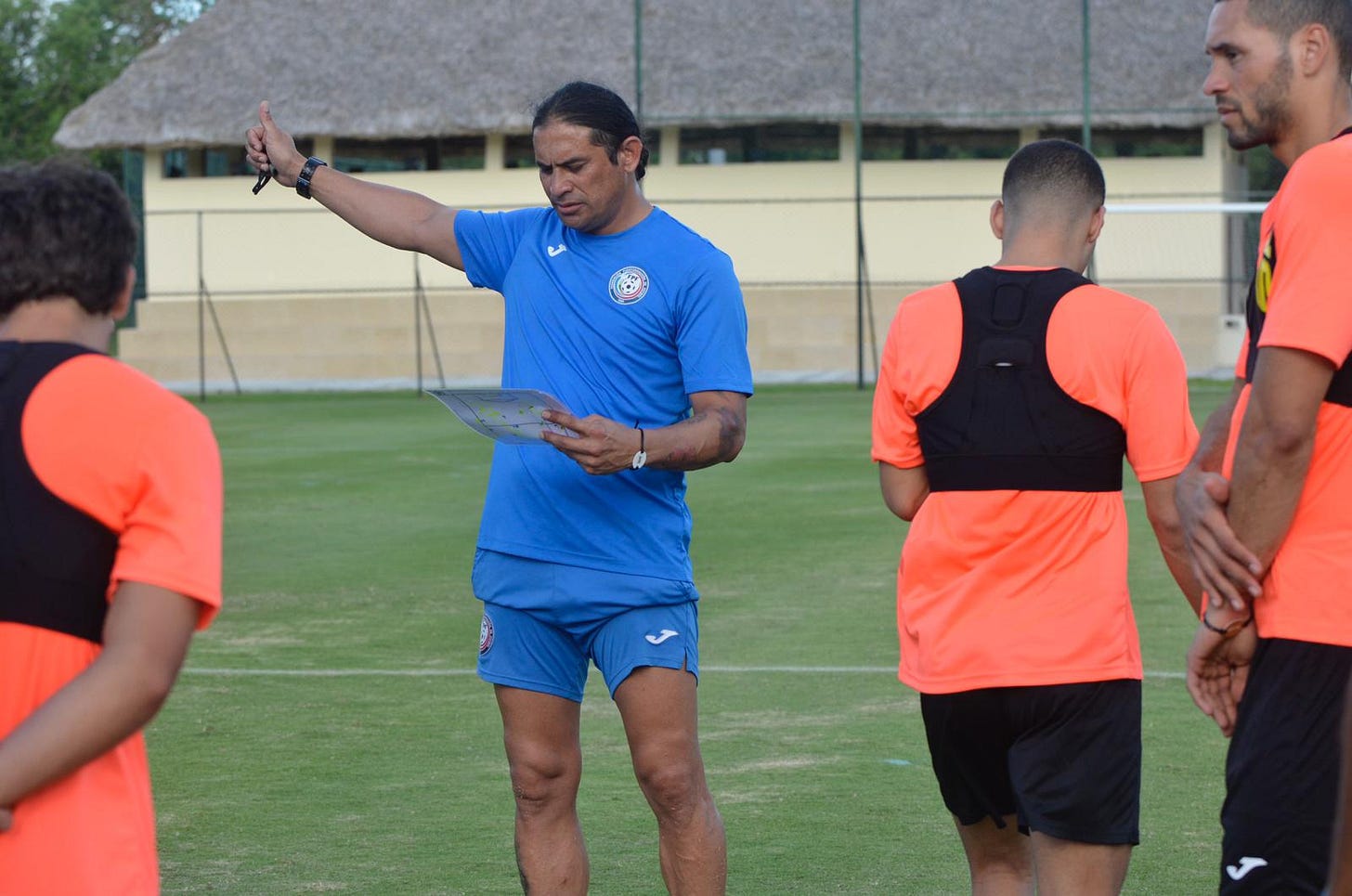
Puerto Rico is not a U.S. state. It’s not an independent nation. Yet, there’s still a fierce pride in being Puerto Rican, something on display in international sports in which Puerto Rico competes separately from the United States, despite being an unincorporated territory of the North American country.
While the island has become known for its production of great baseball players and boxers, the national soccer teams have given residents little to be proud in. Efforts to change that continue Tuesday, when Puerto Rico meets the Dominican Republic in the first Concacaf international of the year.
Adding successful soccer to Puerto Rico’s sporting identity will not happen overnight, however, and those involved in the efforts are fully aware of that.
Andrés Mirabelli, sporting director of national teams, said positive results this year in World Cup qualification would be a bonus to the projects started with future success in mind.
“We’re all clear. The coaching staff is clear. We’re working on a long-term project. If things happen in the short term and we’re able to get into the next round, everyone wants that. A World Cup, we know, is very far,” Mirabelli said, “If we can win today, awesome. If we can qualify, awesome. That’s not the short-term goal.”
The final goal is the World Cup. Mirabelli said he and other directors want to put Puerto Rico on a path that will lead to becoming one of the five best teams in the Caribbean. With the World Cup expanding, the belief is the top five Caribbean teams, along with six powers in Central America would make up a pool of 11 teams who would have a real shot to qualify should Concacaf have six bids for, say, the 2030 World Cup.
It’s a bet on something Puerto Rico has basically never had: Continuity.
“Without a doubt, the goals are long-term with this team. We’ve got very young players and we’re hoping that the players we have together right now could be a group for maybe 10 years,” head coach Elgy Morales said.
Tuesday’s match against the Dominican Republic is part of a two-week training camp in the Caribbean with El Huracán Azul also playing a pair of friendly matches against Guatemala in the next week.
The fact the training camp and friendly matches are happening at all are additional novelties. So too is the fact that most of the players taking part in the camp are professionals.
Like other Caribbean countries, player recruitment off the island has become critical to showing initial success, success directors hope can show the public there is a chance to do something great in future. Mirabelli’s task in finding players is more complicated than most, though. “It’s not the same as finding an Argentine or an Ecuadorian who has their passport. We’ve got the same passport as the North Americans, which makes it tough,” he said.
But the time he spent researching and making calls during pandemic lockdowns is paying off, and Puerto Rico currently has a committed young core of players, many of whom suited up for the U.S. at youth levels and are playing in the USL Championship.
“I love representing Puerto Rico,” said Devin Vega, a 22-year-old who spent last season with Real Monarchs. “I had gotten a couple messages when I was younger to go with the U-17s and youth but since I was with the U.S., I stayed with the U.S.
“Representing Puerto Rico has been an honor and to wear the jersey has been an honor.”
Any player born in Puerto Rico or who has a parent or grandparent born in Puerto Rico is eligible to wear la monoestrellada, though any player who suits up for a senior national team like the U.S. must wait three years from their last appearance. That’s why FC Dallas midfielder Brandon Servania, who played in the United States’ friendly against Costa Rica in early 2020, won’t be eligible until 2023 at the earliest.
“For me, personally, it means just the same” as representing the United States, said Jaden Servania, a 19-year-old midfielder who plays with Birmingham Legion, and Brandon’s brother. Servania suited up for Puerto Rico at the Concacaf U-20 Championship in 2018 and scored multiple goals in all three group-stage victories. “My mom is from Puerto Rico, her whole family, so we visit there every year. Being able to represent this country is great for me personally because my mom is really proud of her hometown. Every time I step out there, it’s just a great feeling.”
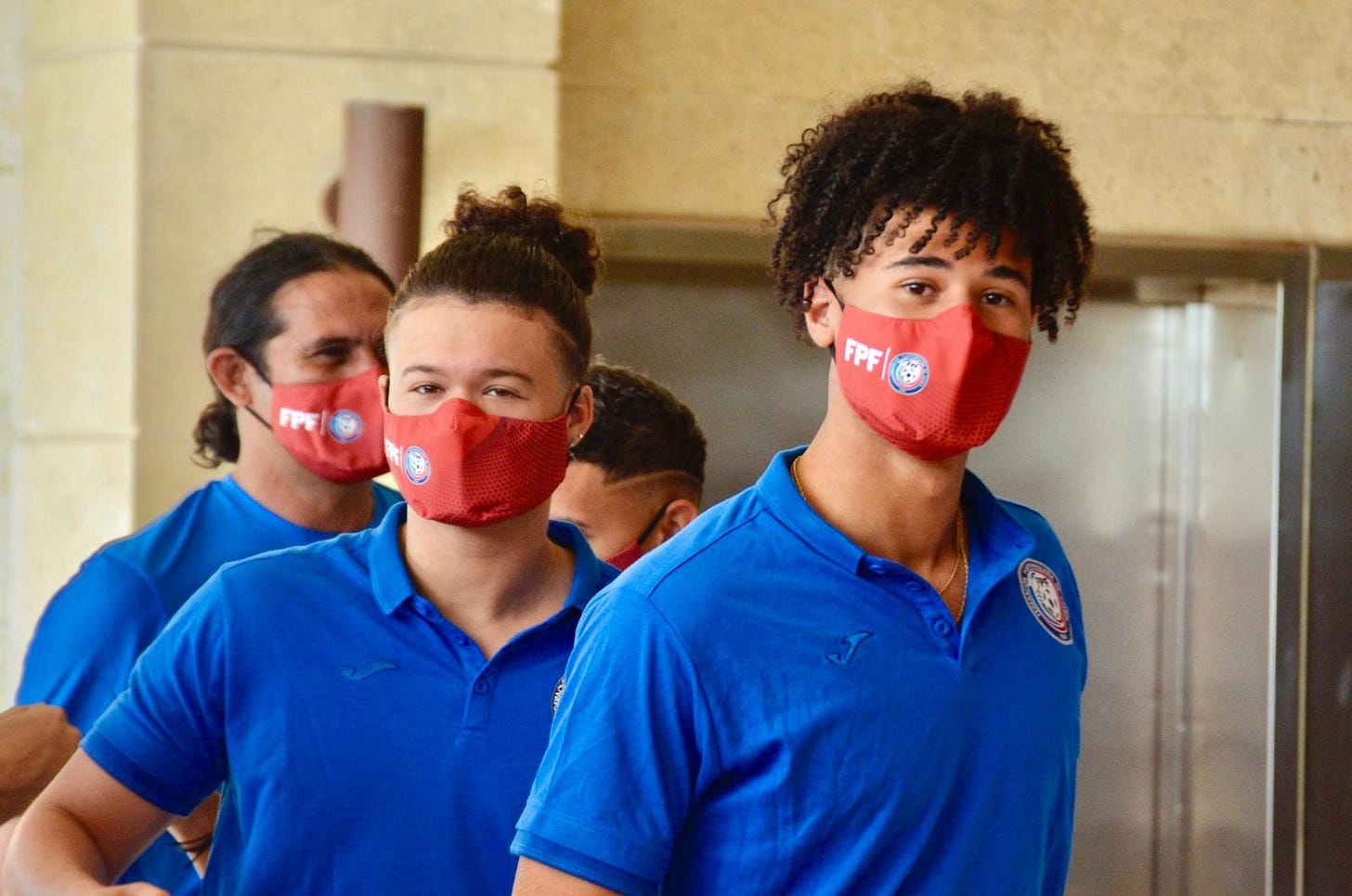
While bringing in professionals, especially young professionals, proud to represent Puerto Rico is key to the long-term transformation Mirabelli and Morales are planning, it brings with it another challenge. Many of the players born in the continental U.S. speak limited Spanish, Puerto Rico’s most commonly spoken language and the language in which the Costa Rican Morales and his staff of Boricuas and Argentines are most comfortable.
Captain Sidney Rivera, an alumnus of Puerto Rico’s last major professional club team Puerto Rico FC, often helps with translation, and Servania said the linguistic differences even present the opportunity to help build chemistry with his new teammates.
“I feel like it’s kind of helping us get to know each other more,” he said. “Even though some speak only Spanish, some only English, I think everyone’s getting along very well.”
Morales utilizes video elements in his pre-training chats to make sure everyone understands expectations before stepping on the practice field. Servania and Vega both are trying to earn starting spots ahead of March’s World Cup qualification contests against Saint Kitts and Nevis and Trinidad and Tobago, and Morales noted that with so many new faces he’s not entirely sure what his starting XI will look like for the most important matches in the national team’s recent history.
He is confident, however, that his message about the style of play the team will use, a style the federation is looking to teach players at all levels, is getting through to his group.
“Our team has to compete, but compete playing football with clear ideas about how to play out of the back, precise transitions in both offense and defense and being good on the ball, nothing more, nothing less,” Morales said. “We’re not going to be a team that tries to do what has been done before to wait for the ball for the opponent to come to us.
“We call ourselves El Huracán Azul and we want to be a hurricane in the good sense of the word. We want to be ‘un huracán de fútbol,’ and with every player we have to impose a good level of technical skill, an exquisite and rich game and while it may be with young players, a lot of those guys are very experienced.”
That’s why while a World Cup finals appearance is still very far away, Puerto Rico still is holding onto hope it will raise eyebrows in World Cup qualification, soon earn Nations League promotion and make sure the national team is yet another thing for Puerto Ricans to be proud of.





